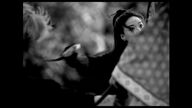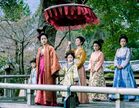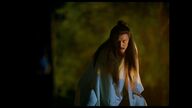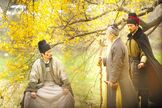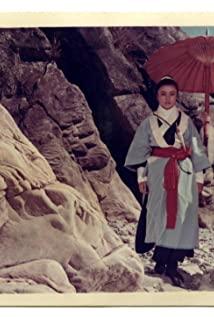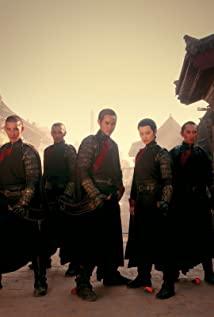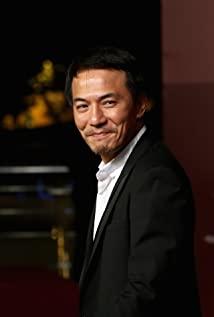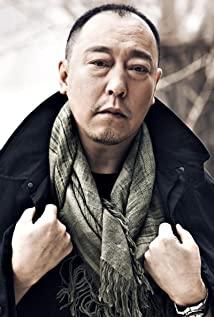Waste Li: The expression of "Nie" belongs to the tip of the iceberg. It is subtle but not ingenious. It is the distinction between a master and a craftsman. The scenes with Shennongjia in Japan were all deleted (I would like to see them), not because they are redundant, but unnecessary. But not taking pictures and taking pictures and deleting them are fundamentally different. If you don't take a picture, it's a waste, and if you take a picture and delete it, it's a matter of consideration. The so-called Paoding Jie Niu, using its potential.
Style: Tang's novels are originally literature and language, but not concrete. Movies are, after all, the language of scenes. Watching a movie is about style, a kind of breath conveyed by a figurative scene. There are people, languages, and movies, but they are different. Tang Chuan's change of film itself is to do the transformation of breath, which is human's will. Flying to the head, midsummer resting for a while, the camera captures all the processes, each picture is composed of efforts, but there is no meaning to express, it is all conveying breath. I don't think the language of "killing one person in ten steps" or "opening a room" is capable of expressing a figurative atmosphere. It may be more vivid, but this description is completely different from the atmosphere I feel from the movie. Stuff, too fancy. The atmosphere of the movie is a feeling that comes to the face, not paying attention to the rhythm of the foot and the loose, the head and the neck. Maybe another word is better to understand, be pie. "Nie" is a very stylish movie. The tangled word is just another way of saying it, like a deep feeling but nothing to say, you can only find analogy or simulation, and it is not like itself.
Youxuan: Hou Hsiao-hsien's "Nie" just used some events and characters from "Nie" of Tang legend, which is very different from Pei Chao's intention to write Tang legend. Hou Hsiao-hsien has been looking for status. The state can go back and forth in time and space, and the distance from people is closer to events. Yao Qi stared at the target on the beam, Tian Ji'an leaned on the bed in the noisy courtroom, bored and bored, and the mirror-grinding boy and Nie Feng sat silently by the fire, just like we were thinking while walking, Watching the scene on the subway is like being distracted at work. The occurrence of this state does not change due to time, space or events. It is also silent and quiet, but to express the silent and quiet charm can only be expressed in the language of the camera. At the end of the language, it can only express the dream that has not become a light and ashes. There is no way to contemplate, and there are stereotypes everywhere.
Falsehood and reality: Some people say that the film is a deconstruction of the original text, some say that "Nie" has found another way to open up the legend of the Tang Dynasty, and some people even use the word "reconstruction" to describe the life of the Tang Dynasty reproduced in the film. , There are too many comments in the flavor of undergraduate thesis. I think that after the analysis, it will see through the rationality. In fact, it is nonsense and reasonable. It is still boring. To talk about the degree of restoration of life in the Tang Dynasty, "Nie" is only a restoration. Many films are reproduced very realistically. The Japanese people's effort to reproduce the historical style is even more remarkable. Yasushi Inoue's "Dunhuang" was made into a movie. At the time, it was even rigorous enough to test whether Xixia's armor had handguards. In recent years, "My Brothers in the Tang Dynasty" is also very restored. Just like the real Tang Dynasty, the scenery of the city, the farmers and businessmen, at first glance, I thought it was a Japanese costume film. This sense of reality is indeed moving, but moving alone is not enough to hit the pain point. What hurts is the sense of deja vu in different time and space.
Dongdu: An assassin, who shouldn't have to worry about the saints, but did not do anything. The two duels with their lives were all over, and in the end, the old man and the mirror-grinding young man went east with a contemplative thought. At the end of the film, the old man praised her for her benevolence , Good Cigna. This is simply the three heroes of the dust. The movie "Nie" seems to completely violate the mysteries and mysteries of the original legend, but it returns to the ancient spirit of benevolence, righteousness and promise in Tang novels. This truly retro re-creation is rare. After it discarded the magical elements of the original work, it regenerated a Tang Dynasty story with a sense of sight. This kind of truth is more similar to our daily life. The emotional fluctuations of consciousness and most of the behaviors are tedious and boring. Explained in a few words. That's the pain point of this movie. It is not difficult to move people, but when they are moved to the pain point, it will make people feel heartbroken.
Immediate sense of sight: I believe everyone has this, no matter ancient or modern, all over the world. Speaking of it, it is a predictive extension beyond the self-life experience. Unexpected occasions suddenly come up, as if the familiarity of revisiting the world, as if a prophecy had been fulfilled. Although this phenomenon has been smashed by various scientific people, I still believe that there are many unexplainable things in this world. This kind of belief does not need a reason. It is the same as that of warlocks alchemy, Tibetans moving to mountains, and old people keeping health.
Sadness: After watching the subtitles at four times the speed at the end of the film, I realized that such a big battle was used. I thought I would see a visual bombardment, but what I saw was still the original Hou Hsiao-hsien. Later, I was bombarded by a green plane in "The Old Man of the Mountains and Rivers", and I was scared out of it as soon as I saw it. Subtitles are faster, and what I see is still the original Jia Zhangke. Silver is not used in real skills, once again verifying the experience of not adding entities if it is not necessary. "The Old Man of the Mountains and Rivers" can be used as a reminder: the special effects are risky and should be used with caution. It shouldn't be compared, because Hou's mind is the kind of great sadness that Zhuangzi cried for his wife. Jia Zhangke's filming "Lands and Rivers" may also want to convey the same sadness as Hou, but the cultural foundation is different, Jia Zhi sadness faintly reveals Zhu Ying Tai sang and sighed in a tone of voice. Zhuangzi is not as romantic as Liang Zhu. He is sad, but he is so sad that he does not hurt. Jia's sadness is that he is so sad. The same sorrow, what sorrow, what sorrow? Zhuangzi grieves for the world and mayflies, Liang Zhu grieves for life and death, and the realm is cloudy and muddy.
Language: Is there a problem with half text? As long as the breath is right, why not. I can't imagine that other Chinese directors can make a full-text film. Who will make it? Shoot what? "Liao Zhai" probably won't work, Yi Shi's perspective is too weird and voyeuristic, "The Bearded Man" or "Youxian Cave" is a bit interesting and possible.
Audience: It's not that I haven't experienced falling asleep in a movie theater. "Blueberry Night" and "Let the Bullets Fly" put me to sleep, but I haven't slept in any of Hou's films. It's probably because of my personality. , I'm sorry for the money I paid for the tickets, but I really don't have an appetite. It's still okay to find a dark and comfortable place to sleep.
Sound: The sound effects are all very good, especially the soundtrack made by Lin Qiang. "Huji Dance" is a Hu Le from the Tang Dynasty, "Qingluan Dance Mirror" is a guqin piece, and the original soundtrack contains minus-character notation, "Paperman" and "Paperman" "Witchcraft" is also environmental electronics, and the ending song "Arhat" is a Buddhist country of thousands of miles, and the grandfather has come from the west. It is hard to imagine Lin Qiang's creativity. ruthless.
Cang Hai: Over the years, I have always had an indescribable awe for Hou, initially because of "Good Morning Taipei" and "My Childhood Memories". Later, I looked back and read all of his works. I dare not say that "City of Sadness" touched me. It hurts my heart because there are so many emotions in this film that I still don't understand. After watching the movie "Nie", and looking back to watch the premiere of "Nie", Mr. Hou didn't mention any professional issues related to the movie. He was just like an ordinary old man. All he remembered was how he borrowed books from a bookstore when he was a child. Coming to read martial arts novels, and how he and his friend Ah Xiong did fake tickets and sneaked into the theater to watch Bawang movies made me understand that he is a person who intends to live, and that the film director is only a mere job. Compared with the whole life, no matter the long years or the long landscape, it is only a drop in the ocean, and what is the movie?
View more about The Assassin reviews



